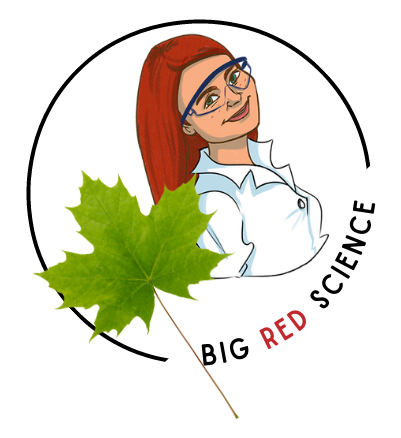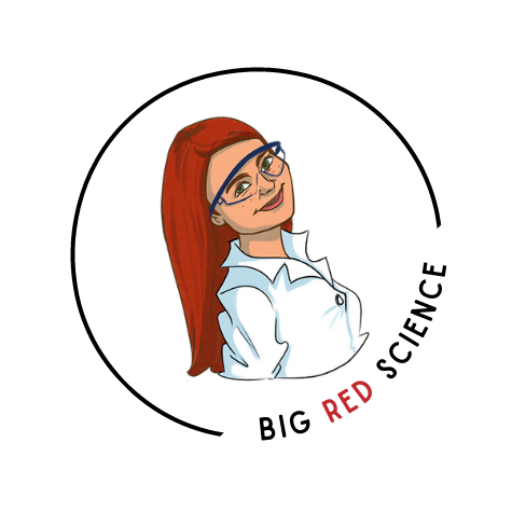Ever had a lab go terribly? The experiment didn’t go as planned? Kids were confused? You felt like you were being pulled in every possible direction to answer questions and deal with problems?
Never again!
Follow these 🔥Hot Tips🔥 to set yourself up for success before students even touch their equipment! (and stay tuned for more tips to follow during and after lab days to make the most out of your science experiments!).
1) Find an experiment based on the topic you want to cover.
(I know, I know – this one is obvious. But we need to start somewhere!) Look through a few options and select something that you have the materials and equipment for and that can be written in student-friendly language based on what they know.
2) Decide what type of lab activity you’ll be doing.
Are you giving students a problem and they need to design the experiment? Is it a “recipe” lab used for reinforcement of a concept that they’ve already learned? Is it a “recipe” lab designed to capture their attention and have them “discover” something? ALL of these are valid. Try to mix it it up!
3) You need to do the lab before the students do.
This can be soooo tempting to skip but trust me – it’s CRUCIAL! This will ensure all your equipment and reagents are functional, you have a good gauge of timing, and you can recognize any potential pitfalls. If you don’t have time to do it yourself (and you are working with a team of teachers), try to sit in on another teacher’s class.
4) Proactively look for common misconceptions and potential pain points.
Be ready for these. As you work through the lab beforehand, think about where students might get stuck or where they will have questions. Make a list of “FAQ” and/or “Points to Remember” and post them on the board for students to reference while they do the experiment. Students will learn to look at the board before putting up their hands, and you can avoid answering the same questions over and over and over and over again!
5) Pick a skill to develop/focus on.
Use lab days as more than just an opportunity for students to have a break from the ordinary. Actively build their toolkit of lab skills so that they become confident scientists who can handle more complex experiments with less help from the teacher. This could include…
- When and how to use a piece of equipment (ex: electronic balance, pipette, bunsen burner, pneumatic trough);
- A skill (ex: selecting tools for measurement, making stock solutions, dilutions); or
- An aspect of lab write-ups (ex: developing a hypothesis, properly collecting data, finding sources of error).
Tell students that in addition to the learning outcome, they have this additional “lab” focus for this particular experiment!
6) Spend time going over the protocol with students.
How much time will depend on how complex the experiment is, but walk them through it and give them the opportunity to review it with their lab partner. Make sure that the protocol includes diagrams to help them visualize what will happen (Chemix.org is a great resource!). You might even consider having a setup at the front of the class for them to refer to or a video or virtual option ready for them to watch in advance.
7) Have them complete a Google form ENTRANCE TICKET.
I think of this as levelling up a typical pre-lab. Include 5-7 questions about anything that you want to draw their attention to (ex: safety issues, waste disposal, changes to the written protocol, making predictions etc.). For example, My questions for a lab about limiting reactant contained the following questions:

If it’s not done before class, they cannot participate (and I’m strict about this!). This ensures that students have some idea of what they’re going be doing AND it allows me to easily look at student answers and highlight any misconceptions they might have before we begin the lab. It’s been a game-changer!
What do you do with your students before lab day to make sure things run smoothly? Let me know at bigredscience@gmail.com!
Check back soon for a more tips to follow during and after lab days to make the most out of your science experiments!
Scientifically Yours,
Mo
Interested in weekly science teaching tips from me? CLICK HERE!
Interested in other ideas? Check out:
3 Creative Science Bulletin Boards for High School
5 Easy Ongoing Science Activities to Engage Students All Year
Low-Pressure Icebreakers for the Science Classroom
7 Super Helpful Tips for New Science Teachers
Classroom Management Series #3: Tips for Reacting in the Moment
Classroom Management Series #2: Tips for Building Relationships
The #1 Things Teachers Wish They Learned in Teachers College
How to Guarantee that Your Students Will Remember What They Learn
The Proven Blueprint to Using Movies in the Science Classroom
Using YouTube for a Low-Prep Bellringer


